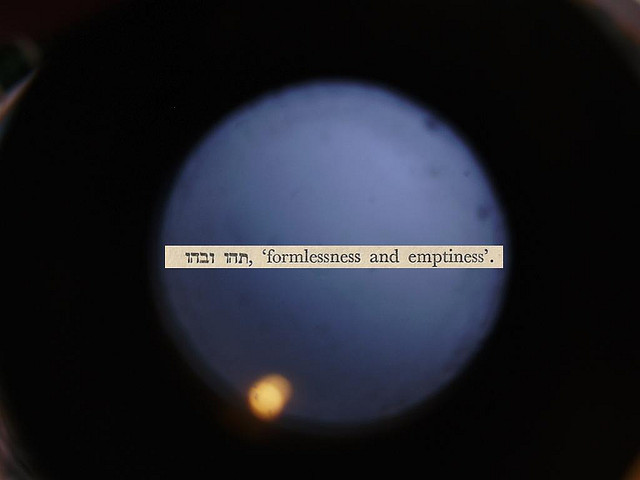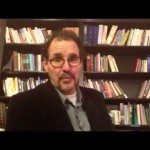We run our website the way we wished the whole internet worked: we provide high quality original content with no ads. We are funded solely by your direct support. Please consider supporting this project.

Pre-Modern Readings of Genesis 1
Biologos posted a three part reflection on Pre-Modern readings of Genesis 1 that are worth a closer look. And no matter what your particular way of reading this portion of Scripture, let’s pay attention to what edifies the Church and whether our reading contributes to that.
From Part I of the series:
Key theologians of the early church (such as Origen and Augustine, as we’ve discussed) read Scripture with multiple senses and meanings—with a literal sense and multiple spiritual senses. However, not all fully agreed with this methodology. Though most all would certainly hold to multiple senses of Scripture, some readers insisted upon a more profound attention to the literal sense, and the use of the literal sense to help restrain or hold in check the possible spiritual readings. Such 3rd- and 4th-century Church fathers, as St. Basil the Great, John Chrysostom, St. Ambrose, and Theodore of Mopsuestia insisted upon a much more restrained literal reading of Genesis 1.6
Yet even those who insist upon a more literal—or more historical—interpretation of Genesis 1 still contended that the primary purpose of any reading was to edify the Church, which entails setting forth the key theological teachings of Genesis 1, rather than focus on the material specifics. Again, such teachings include that the world is created, that God create the world out of nothing, and that the creation account demonstrates the great order and harmony of creation as a testimony of the God’s glory, beauty, and goodness.7
Related Reading

Podcast: Should We Trust the Bible When it Fails on Page 1?
Greg talks about science and the Bible. http://traffic.libsyn.com/askgregboyd/Episode_0345.mp3

What “Man Gave Names to All the Animals” REALLY Means?
Article by Dan Kent “So the man named all the animals, the birds of the air, and the living creatures of the field.” Genesis 2:20 In the fog of our over-Googled, ‘Hey Siri,’ information-obsessed minds I believe we may be looking upon the story of Adam naming the animals with dull eyes. We watch Adam mechanically…

The Cruciform Way of the Lamb
In this video, Greg offers insight into how to read the Bible with the cross at the center of the revelation of God, thereby reframing how we interpret the violent and nationalistic passages of the Old Testament. Travis Reed from The Work of the People did a series of interviews with Greg a while ago and…

Why Bart Ehrman Doesn’t Have to Ruin Your Christmas (Or Your Faith) Part 4
This is the fourth of several videos Greg put together to refute Bart Ehrman’s claims published in the article What Do We Really Know About Jesus? We hope you’re enjoying these! They really provide a great overall approach to Biblical Criticism. If you missed the first three installments you can find them here, here and here.

The Suffering of God
NYC.andre via Compfight This seems like a good follow-up post from what Greg posted yesterday. Charisma posted this reflection on the problem of evil and the suffering of God. It’s a great summary of our thinking about what accounts for the kind of world we see where tragedies like Newtown occur. From the article: C.…

How Classical Theology Gets It Wrong
Classical theology has conceived of God as altogether necessary, simple, timeless, unchanging and unknowable. This view of God requires us to conclude that biblical images of God do not reflect the way God truly is insofar as they portray God moving in sequence with humans from the past into the future, for this obviously conflicts…
